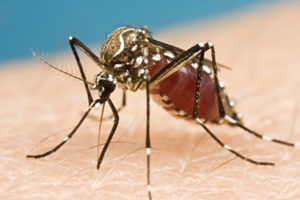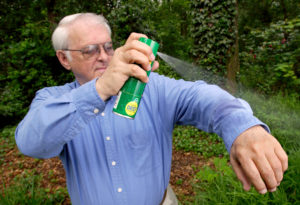University of Miami Zaps Zika
Published on September 13, 2016, at 2:42 p.m.
by Megan Perkins.
“Megan, don’t forget your bug spray” has become my mother’s new catch phrase since the recent Zika virus outbreak in Miami, Florida. My typical response is an eye-roll followed by a “yeah OK, mom,” considering I live nearly 800 miles away from the locally transmitted disease-stricken area. However, my mother’s overreaction sparked a curiosity: What if I were a student at the University of Miami?

The Zika virus has caused a public relations nightmare for the University of Miami. Students, faculty and staff have raised health concerns about coming back to campus for the start of the school year.
“I’m coming from up north, so I’m not really in this area, so it was a little scary coming back, just to be right in the center of it,” said sophomore Julia Cianci in The Miami Hurricane, the UM student newspaper.
Nonetheless, the university has taken a strategic approach to containing the crisis. Transparency and protective action have been the leading strategies to successfully control the situation. Tactics include a combination of research, advisories, forums, drainage, repellent and clinical care. The UM preparedness actions include the following:
- The university and experts on the virus conducted research and made a variety of resources available online to students and parents. Updated information about the Zika virus is posted on the UM Health System and Student Health Service websites. This full disclosure of information allows students to be aware of the effects of the disease and the associated necessary precautions.
- Three advisories sent out in August, a letter to parents and a forum held in March are direct communication approaches taken by the UM public relations practitioners. This form of communication has allowed the university to directly contact students and parents about its health safety plans, as well as create a platform for two-way communication.
- University Facilities Management has been advised to drain any areas of standing water and participate in targeted spraying. UM staff distributed 6,000 bottles of mosquito repellent to students and have participated in conference calls with officials to warrant ongoing awareness. This urgent action proves UM’s authenticity in its efforts to keep students safe.
- UM scientists have been researching diagnostic and therapeutic responses to clinically treat patients. Christine L. Curry, M.D., Ph.D., assistant professor of obstetrics and gynecology, has been treating pregnant women infected with Zika. This approach establishes the university as a firsthand responder to the situation and increases its credibility as a leading expert in science.

While I’ve been stressing about which planner to buy for the new school year, students in Miami have been more concerned about not sweating to death in long sleeves and pants in the last weeks of summer (a preventive action recommendation made by UM staff to students). However, a fashion inconvenience is a small price to pay for the Zika crisis, which the University of Miami public relations team has, thus far, been able to successfully control.




